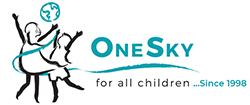OneSky
Company overview
Website:
www.onesky.org
Headquarters: United States of America
Countries of Operations: Vietnam, China, Mongolia
Women owned /led: Founded by at least one woman, At least 51% owned by women, At least 30% women in senior leadership positions
Year of founding: 1998
Number of FTEs
: 20 to 50 FTEs
Legal status of the organization
: Non-profit
For more information, download the full
business profile here

Company overview
Website: www.lavanderiapp.io
Headquarters: Mexico
Countries of Operations: Mexico


Legal status of the organization
: For-profit
Year of founding: 2018
Number of FTEs
: 5 to 20 FTEs
Women owned / led: Founder
Care economy activities and business model
About the organization:
Onesky is a non-profit that trains women operating daycares out of their homes in Vietnam's industrial zones. These daycares serve children of women labouring in nearby factories who do not have access to quality care for their children. It empowers caregivers to establish a responsive relationship with children and create a safe and nurturing learning environment, thereby redistributing care and domestic work whereby young mothers leave their children in the care of onesky trainees to pursue employment or education. Onesky has trained over 75,984 caregivers and impacted 247,753 children.
Activities in the care economy:
Provision of technology & services that train/upskill domestic & care workers
Onesky is a non-profit that trains women operating daycares out of their homes in Vietnam's industrial zones. These daycares serve children of women labouring in nearby factories who do not have access to quality care for their children. It empowers caregivers to establish a responsive relationship with children and create a safe and nurturing learning environment, thereby redistributing care and domestic work whereby young mothers leave their children in the care of onesky trainees to pursue employment or education. Onesky has trained over 75,984 caregivers and impacted 247,753 children.
Stage of growth: Mass roll-out/Expansion
Type of services: Child-care (Ages 1 to 5)
Number of customers (2020): Less than 1,000
Number of customers (2019): Less than 1,000
Number of customers (2018): Less than 1,000
Type of services: Child-care (Ages 1 to 5)
Number of customers (2020): Less than 1,000
Number of customers (2019): Less than 1,000
Number of customers (2018): Less than 1,000
Financials
Revenue USD (2020): Between 500,000 to 1 million
Revenue USD (2019): Between 500,000 to 1 million
Revenue USD (2018): Between 500,000 to 1 million
Pathways to impact
Challenge addressed:
Lack of recognition and action with regards to unfair distribution of care and domestic work, Lack of / poor remuneration for care and domestic workers, Others
Pathway to impact - 4 Rs: Recognize, Reward
Populations affected: Paid care workers, Infants or children
Number of people served (2020): Less than 1,000
Number of people served (2019): Less than 1,000
Number of people served (2018): Less than 1,000
